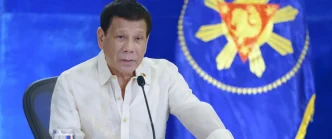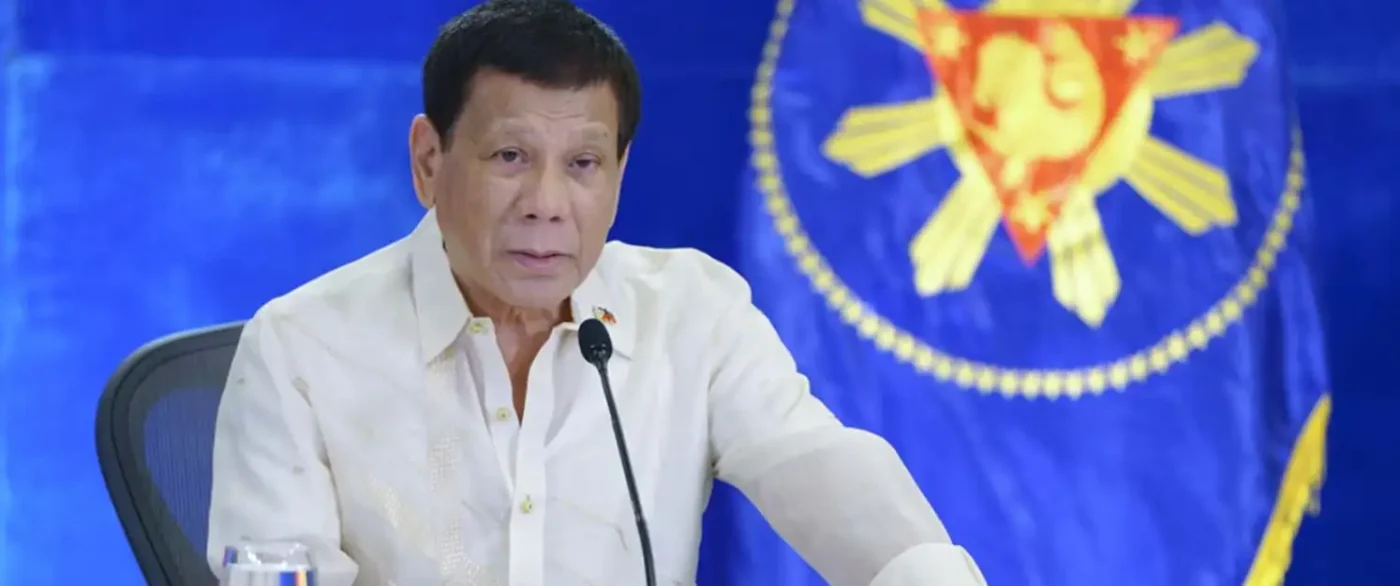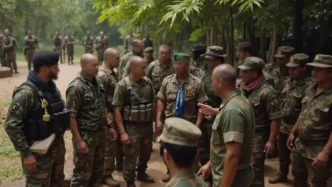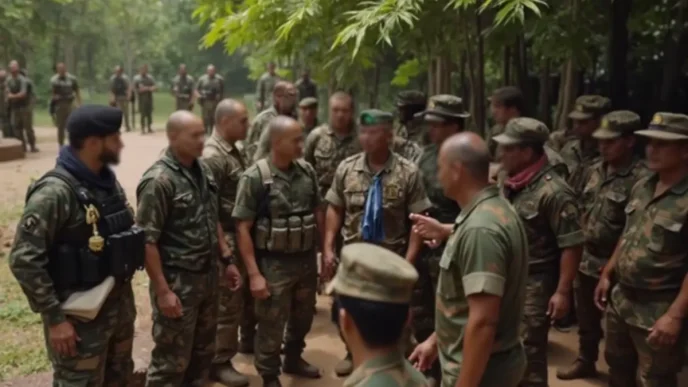The International Criminal Court (ICC) is facing a pivotal moment in its case against former Philippine President Rodrigo Duterte, as prosecutors have called on the court’s Pre-Trial Chamber 1 to reject a challenge by Duterte’s legal team questioning the tribunal’s jurisdiction over the Philippines. In a strongly worded 35-page filing dated June 10, 2025, Deputy Prosecutor Mame Mandiaye described the defense’s arguments as “fundamentally flawed,” urging the chamber to affirm the ICC’s authority to proceed with the case involving alleged crimes against humanity during Duterte’s tenure.
A Contentious Legal Battle
The challenge, detailed in a 38-page document titled “Defence Challenge with Respect to Jurisdiction,” argues that the ICC lacks the legal basis to pursue Duterte due to the Philippines’ withdrawal from the Rome Statute, the treaty that established the court. The withdrawal took effect on March 17, 2019, under Duterte’s administration, following growing tensions over the ICC’s investigation into the country’s brutal war on drugs, which resulted in thousands of deaths. Duterte’s team contends that the court’s jurisdiction is conditional not only on the Philippines’ status as a state party at the time the alleged crimes occurred but also when the court’s exercise of jurisdiction was triggered. Additionally, they argue that the governing provisions on withdrawals allow the court to be deprived of jurisdiction post-exit.
However, the prosecution has firmly rejected these claims, asserting that they misinterpret the Rome Statute. According to the ICC’s earlier rulings, the court retains jurisdiction over alleged crimes committed on Philippine territory while it was a state party, covering the period from November 1, 2011, to March 16, 2019. This timeframe includes the early years of Duterte’s presidency, during which his administration’s anti-drug campaign drew international condemnation for alleged extrajudicial killings and human rights abuses.
In their filing, prosecutors emphasized that the Pre-Trial Chamber should build on its prior reasoning, including the issuance of an arrest warrant for Duterte and the authorization of the investigation into the situation in the Philippines. “In so doing, the Chamber should follow and as necessary elaborate upon its own reasoning” said Deputy Prosecutor Mandiaye, underscoring the importance of consistency in the court’s legal framework.
Background of the ICC Case
The ICC’s involvement in the Philippines stems from a formal investigation launched in September 2021, following years of advocacy by human rights groups and families of victims who allege that Duterte’s policies led to widespread atrocities. The probe focuses on the war on drugs, which Duterte championed as a cornerstone of his presidency from 2016 to 2022. Official figures from the Philippine government report over 6,000 deaths during police operations, though independent estimates by rights organizations suggest the toll could be as high as 30,000, including killings by vigilante groups allegedly encouraged by state rhetoric.
Duterte has repeatedly denied responsibility for extrajudicial killings, maintaining that deaths occurred during legitimate law enforcement operations. His administration’s decision to withdraw from the ICC in 2018 was framed as a rejection of foreign interference in domestic affairs, a stance that resonated with many of his supporters but drew criticism from international observers. Despite the withdrawal, the ICC has maintained that it retains jurisdiction over crimes committed during the period of membership, a principle now under scrutiny in Duterte’s challenge.
The former president’s initial appearance at the ICC on March 14, 2025, in The Hague marked a historic moment, as it was the first time a former Philippine head of state faced proceedings at the international tribunal. Duterte’s legal team has since pushed for his immediate release and the nullification of the case, arguing that the court’s actions lack legal grounding.
Implications for International Law
The outcome of this jurisdictional challenge could set a significant precedent for the ICC’s authority over states that withdraw from the Rome Statute. Legal experts note that affirming the court’s jurisdiction would reinforce the principle that withdrawal does not absolve a state—or its leaders—of accountability for crimes committed during membership. Conversely, a ruling in favor of Duterte’s defense could embolden other nations to exit the ICC as a means of evading prosecution, potentially undermining the court’s global mandate to address war crimes, genocide, and crimes against humanity.
“This case is a litmus test for the ICC’s resilience” said Maria Alvarez, a Manila-based international law scholar. “If the court’s jurisdiction is upheld, it sends a message that leaders cannot simply opt out of accountability. But if the defense succeeds, it may weaken the ICC’s deterrent power.”
Beyond the legal ramifications, the case has reignited domestic debates in the Philippines over Duterte’s legacy. While his supporters view the ICC proceedings as politically motivated and an infringement on national sovereignty, critics argue that justice for the victims of the drug war is long overdue. Public sentiment, as reflected in recent posts on social media platforms like X, remains deeply divided, with some users hailing Duterte as a strongman who tackled crime, while others demand accountability for what they describe as state-sanctioned violence.
Victims and Families Seek Justice
Amid the legal wrangling, the human cost of the drug war remains a central issue. The ICC has confirmed that victims and their kin, including those residing outside the Philippines, can still participate in the case against Duterte. This provision offers a glimmer of hope for families who have sought justice for years, often at great personal risk. Many have faced harassment or intimidation for speaking out, while others struggle with the emotional and financial toll of losing loved ones.
Human rights organizations have welcomed the prosecution’s stance, viewing it as a step toward accountability. “The ICC must stand firm against attempts to derail this case” said Clara Reyes, a spokesperson for a Philippine-based advocacy group. “Thousands of families deserve answers, and the court is their last resort after domestic mechanisms failed them.”
However, challenges remain. The Philippine government under President Ferdinand Marcos Jr. has maintained a cautious stance on cooperating with the ICC, balancing domestic political pressures with international obligations. While Marcos has indicated a willingness to engage with the court on certain terms, full cooperation remains uncertain, complicating the ICC’s efforts to gather evidence and witness testimonies on the ground.
Global Spotlight on the Philippines
The Duterte case has drawn significant international attention, placing the Philippines under a global spotlight at a time when the country is navigating complex geopolitical and economic challenges. For the ICC, the proceedings represent an opportunity to demonstrate its relevance in addressing impunity, particularly in regions where domestic judicial systems are perceived as unable or unwilling to prosecute high-level officials.
Yet, the road ahead is fraught with uncertainty. Legal analysts anticipate that even if the Pre-Trial Chamber dismisses Duterte’s jurisdictional challenge, further appeals and procedural delays could prolong the case for years. Meanwhile, the political climate in the Philippines—where Duterte retains considerable influence through allies and family members in government—adds another layer of complexity to the pursuit of justice.
As the ICC deliberates on this critical issue, the eyes of the world remain fixed on The Hague. The chamber’s decision will not only shape the trajectory of Duterte’s case but also influence the broader discourse on international accountability and the limits of state sovereignty. For now, victims and their advocates hold onto the hope that the court will uphold its mandate, while questions linger about whether justice, delayed by years of conflict and political maneuvering, can finally be served.
















